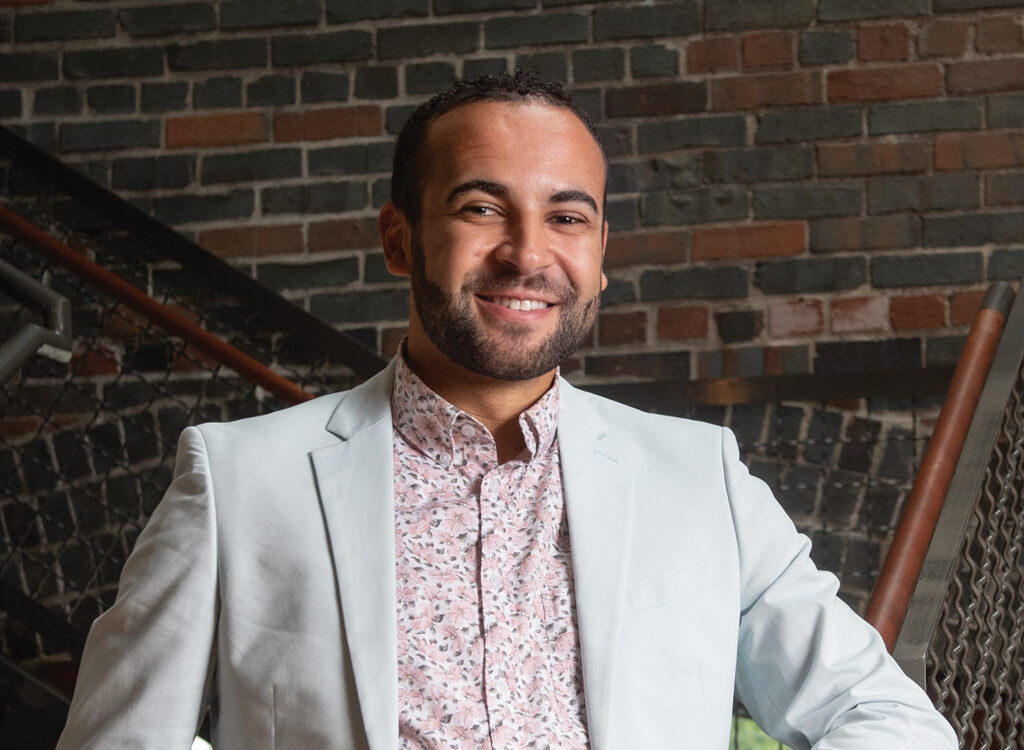Leaders Survey 2020: Problems illuminated by pandemic, yet resilience still evident
COVID, child care, talent and racial equity identified as key issues

Editor’s note: This is a continuation of our 2020 Leaders Survey coverage, which we began publishing in the Nov. 27 issue. Our annual survey asks business leaders to share what they feel are some of the top issues affecting business in Central Iowa, and in particular the Greater Des Moines region. As you read, you’ll see the responses and also select remarks from differing viewpoints from those who opted to leave comments as they took the survey.
This year’s guest editor, Claudia Schabel, is the president of Schabel Solutions, a consulting firm that offers strategic solutions on how to build inclusive workplaces to attract and retain talent. She provided analysis of each question.
FILL IN THE BLANK
The biggest strength the COVID-19 pandemic has exposed about the local economy is _______.
Guest Editor Claudia Schabel: Respondents related the following as common strengths exposed by the pandemic: the adaptability and resilience of the people and businesses and the diverse mix of industries present in the metro.
“We support our local businesses. I’ve been surprised and enheartened by the relatively few local restaurants that have had to shutter as a result of the challenges of the pandemic. We’ve lost some good ones, but it feels like it could have been much, much worse.”
Matt Unger, CEO, DMARC — Des Moines Area Religious Council
“We are fundamentally strong economically and have responded well to following precautions while moving on with life.”
Kim Butler Hegedus, executive vice president, Community State Bank
“Our health care systems.”
David Stark, president and CEO, UnityPoint Health-Des Moines
“DSM’s strength is that our community continues to invest in itself as one region, even during difficult times. As economist James Chung?said in his recent presentation to the DSM community as part of the Tomorrow Plan series: “One of the reasons we found that Des Moines was one of the strongest-performing midsized U.S. cities in the past decade was that it continued to move forward and invest?in itself during?the last recession. Looks like the pattern continues. …”?We must continue to invest in ourselves through projects such as Central Iowa Water Trails, the Lauridsen Skatepark, the downtown soccer stadium, the DSM International Airport terminal, Des Moines industrial transload facility and a wide range of other significant economic development, transportation and infrastructure, housing and quality of life projects. As we continue to move forward together, we must continue to invest in our region and position DSM for future success.”
Jay Byers, CEO, Greater Des Moines Partnership
“That employees can work very productively remotely. It has raised interesting questions as to whether we need large office buildings. It’s totally changed our way of thinking and doing work.”
Kevin Pokorny, owner and coach, Pokorny Consulting
“Our willingness to reach out and help each other.”
Todd McDonald, president, ATW Training Solutions
“Working from home is not an impossibility anymore. We can adapt to variety and change, as needed.”
David Kilpatrick, executive director, Des Moines Community Theatre
“How well our community works together to tackle any problem thrown at us.”
Rick Tollakson, CEO, Hubbell Realty Co.
“The work ethic of its people, across all sectors, to do what needs to get done when it’s not always clear what that means.”
Todd Kielkopf, president, Kielkopf Advisory Services
“That business is resilient and that Iowans support Iowans any way they can.”
Susan Martin, chief operating officer of Optimae Services, Optimae LifeServices
“Our urban and rural communities have allowed us to be responsible and maintain a quality of life during the pandemic.”
John Schreurs, president and CEO, Strategic America
FILL IN THE BLANK
The biggest weakness the COVID-19 pandemic has exposed about the local economy is _______.
Guest Editor Claudia Schabel: COVID-19 magnified the many disparities and inequities that have existed in our backyard for generations. In 2020, we were forced to acknowledge these disparities as well as our blind spots. We may not all be accepting it, but we all had to face the reality that Central Iowa is not a great place for everyone. One respondent summed up the consensus quite well: “We are in the same storm but not in the same boat.”
Respondents related the following as weaknesses exposed by the pandemic: Disparate connectivity to broadband; low support for small businesses when compared to large businesses, when those small businesses are often fragile (especially entertainment, restaurants and service industries); unequal access to quality health care and child care; and as gaps in income, wealth and security.
“The lack of reliable internet access for all. Public schools need to be more creative in cyber learning opportunities.”
A.J. Johnson, city manager, city of Urbandale
“There is a strong reliance on the restaurant and food service industry with many of those individuals living paycheck to paycheck. Also the concern that if the large corporations in downtown don’t bring all of their people back, the growth and expansion happening in downtown will come to a halt.”
Susan Martin, chief operating officer of Optimae Services, Optimae LifeServices
“Lack of adequate support services for homeless and food insufficiency.”
Lynn Michl, chief financial officer, EveryStep
“The governor not requiring masks and following the CDC recommendations has caused many disruptions of workers all around the state. Enforcement of the mandate is not the issue – it was about leadership, and that appears weak.”
Mona Bond, president, Capitol Communications Inc.
“The skywalk is completely dependent on large employers. The street-level retail/restaurants are more agile and able to adapt to the new interactions with customers.”
Jake Christensen, president, Christensen Development
“Protection for ‘nonessential’ business.”
Tony Dickinson, president, finance corporation, NCMIC
“Some businesses and organizations were not prepared for the digital transformation. ALL Iowa companies are technology companies!”
Brian Waller, president and CEO, Technology Association of Iowa
“The deep economic disparities that exist for people of color, Black and brown and other marginalized populations.”
Teree Caldwell-Johnson, CEO, Oakridge Neighborhood
“I am so sad to see that due to child care concerns as a result of COVID-19, more women are leaving the workplace. I am concerned by the long-term impact of this shift and what it will mean for future earnings and financial well-being for women in Iowa.”
Jaimie Miller, executive director, Iowa Credit Union Foundation
“A lack of support for too many truly essential employees – particularly in looking at pay and protective measures for those in the positions.”
Matt Unger, CEO, DMARC — Des Moines Area Religious Council
“Reliance on in-person business.”
Addie Olson, director of marketing and public relations, Community Foundation of Greater Des Moines
“Alcohol consumption is more prevalent than I realized. People thrive on social interactions and activities. Our mental health system is underfunded and critical to the well-being of our state.”
Jodi Corcoran, executive vice president, Community State Bank
“Issues involving supply chain.”
Mike Ralston, president, Iowa Association of Business and Industry
“Socioeconomic inequities in pandemic preparedness.”
Kimberly Baeth, president, Golden Openings Inc.
“Many small to midsized businesses have inadequate technology infrastructures and aren’t able to maximize remote working.”
Alan Feirer, owner, consultant and trainer, Group Dynamic
“Fragile state of most Americans living paycheck to paycheck.”
Sean Fogarty, partner, Artisan Capital Group
“The huge wage and security gap between the top 25% of the workforce and the remaining 75%. We have over 50% of Central Iowans who pay more each month for housing than their income can handle – and this was BEFORE COVID. This was NEVER a good and sustainable economy.”
Eric Burmeister, executive director, Polk County Housing Trust Fund









